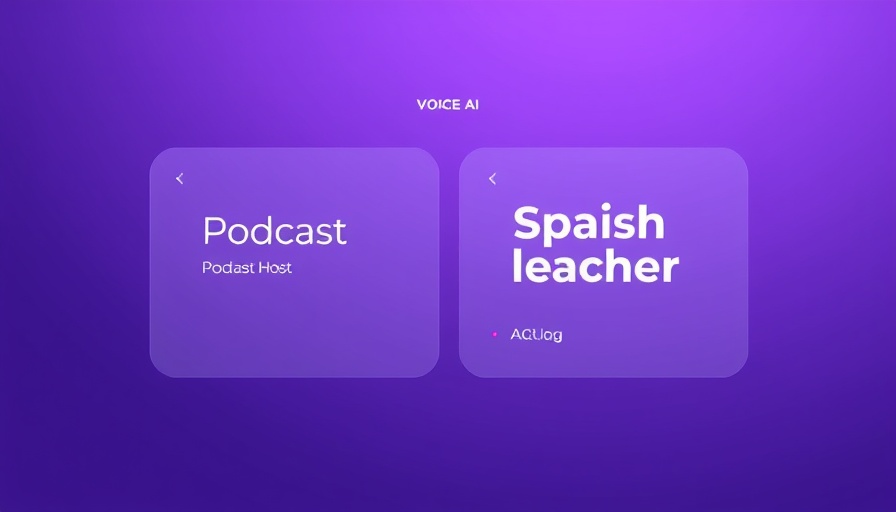
Revolutionizing Communication: The Power of Emotionally Intelligent AI
In an era where artificial intelligence is rapidly evolving, Hume AI’s Octave platform emerges as a frontrunner in reshaping the landscape of text-to-speech (TTS) systems. Traditional TTS technologies have long been criticized for their mechanical inflexibility, often failing to convey the nuanced emotions and intentions behind human speech. With Octave, Hume AI introduces a pioneering approach that incorporates emotional intelligence into voice synthesis, effectively bridging the gap between human emotion and computational speech.
Understanding the Essence of the Empathic Voice Interface
Hume's Empathic Voice Interface (EVI) is a defining feature of Octave, enabling the system to not only articulate words but also comprehend emotional contexts. By analyzing and mirroring human emotions, EVI allows for an interactive experience where users can communicate in a relatable manner. Whether a user is expressing sorrow or enthusiasm, Octave adjusts its vocal output accordingly, offering a more immersive conversational experience. This feature stands in stark contrast to conventional AI systems, which operate purely on verbal input without an understanding of emotional nuance.
Octave’s Standout Performance in User Studies
Recent studies highlight Octave’s superior performance compared to leading competitors. In a blind assessment involving 180 human raters, Octave excelled in areas such as audio quality and naturalness, garnering preference rates of 71.6% and 51.7%, respectively. These metrics underscore Octave's capability in aligning with human emotional tones and enhancing user engagement. For businesses seeking reliable communication tools, Octave presents a clear advantage, demonstrating that AI can adequately reflect the complexity of human emotion.
Seamless Steerability and Voice Design Features
One of the unique attributes of Octave is its steerability. Much like an accomplished actor, users can prompt the AI to deliver lines in various emotional styles—a capability that significantly enhances user experience across applications. The Voice Design feature allows users to create distinct characters through nuanced language descriptions, a significant leap forward for industries such as gaming, education, and entertainment. This empowers business owners to craft unique brand voices and narratives that resonate with their audience.
Emotional Intelligence: A Game Changer for Business Growth
For business owners looking to foster connections with clients, the integration of emotionally intelligent technologies like Octave can redefine engagement. Businesses can utilize this AI to create personalized interactions that feel authentic and empathetic. Such innovations not only increase customer satisfaction but also enhance brand loyalty—qualities that are essential in today’s competitive marketplace.
Future Predictions: The Direction of Voice AI Technology
As industries increasingly adopt AI technologies, predictions suggest that the demand for emotionally intelligent systems will rise. The ability to analyze and simulate human emotions in real time could revolutionize customer service, marketing strategies, and user interaction. Companies that embrace these advancements stand to benefit significantly; those that ignore them risk falling behind. Hume AI is at the forefront of this change, setting a precedent for the future of human-like communication.
In Summary: The Value of Emotionally Intelligent AI
Hume AI's Octave platform signifies not just technological advancement but a transformative approach towards voice interaction. By integrating emotional intelligence into its TTS systems, Hume AI offers businesses an opportunity to differentiate themselves through authentic communication. As businesses navigate growth strategies in a digital age, leveraging such innovative technologies could be the key to standing out in a saturated market.
Investing in voice AI that understands emotions and nuances will place businesses ahead of the curve, driving both customer engagement and growth. As we explore the potential of AI in enhancing communication, it is crucial for business owners to explore how these advancements can serve their specific needs.
 Add Row
Add Row  Add
Add 




Write A Comment